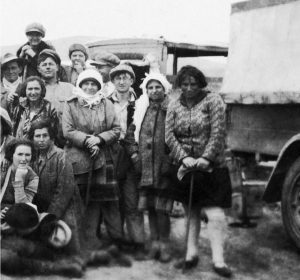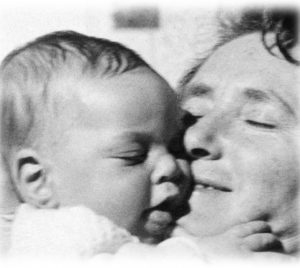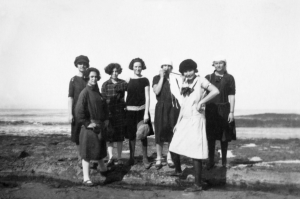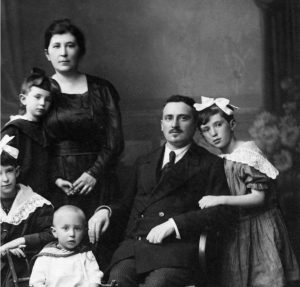Selected & edited by Rivka Gitai Translated by Timothy Aaron Priest
Born in 1909 in Haifa to Russian Zionist parents, Efratia Gitai was “the eldest daughter” of the Second Aliyah, the second wave of Jewish immigrants to Ottoman Palestine.
Her family’s migration and her own critical eye made her a keen observer of watershed moments: the Bolshevik Revolution; the cosmopolitan culture of Vienna, where she studied psychology with Anna Freud; Hitler’s 1932 speech at Alexanderplatz; Churchill’s declaration of war heard as she fled by boat from Poland to Haifa; early experiments in kibbutz living; and the Six Day War. In Haifa, she married Bauhaus architect Munio Weinraub Gitai, who was poised to shape modern Tel Aviv and who, Efratia notes, “had met the greats, such as Kandinsky, Paul Klee, and Mohology-Nagy, and the director Mies van der Rohe, with whom he worked on the last project in Berlin before Hitler came to power”.
About the Author
Born in 1909 in Haifa to Russian Zionist parents, Efratia Gitai was “the eldest daughter” of the Second Aliyah, the second wave of Jewish immigrants to Ottoman Palestine. Her family’s migration and her own critical eye made her a keen observer of watershed moments: the Bolshevik Revolution; the cosmopolitan culture of Vienna, where she studied psychology with Anna Freud; Hitler’s 1932 speech at Alexanderplatz; Churchill’s declaration of war heard as she fled by boat from Poland to Haifa; early experiments in kibbutz living; and the Six Day War. In Haifa, she married Bauhaus architect Munio Weinraub Gitai, who was poised to shape modern Tel Aviv and who, Efratia notes, “had met the greats, such as Kandinsky, Paul Klee, and Mohology-Nagy, and the director Mies van der Rohe, with whom he worked on the last project in Berlin before Hitler came to power”.
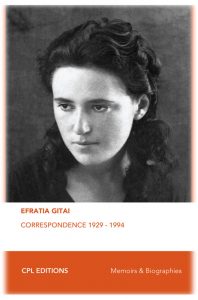
Author : Efratia Gitai
Title : Correspondence
Year : 2019
Series : Memoirs
ISBN paperback: 978-1-941046-25-8
ISBN ebook: 978-1-941046-26-5
Price ebook: $9
Price paperback: $15
Publication date: November 2019
Amos Gitai to his mother Efratia
Efratia’s letters attest to the life
Of a woman, my mother:
Her intimate reflections and her doubts,
Her thirst for independence,
Her heated debates with her father
About the destiny of her country.
Her loves, cult of friendship,
Motherhood,
And later periods of mourning and loss, old age, and troubled times.
I can still hear her voice,
The Ancient Hebrew of a daughter of the first generation of labor pioneers
Who wanted their child to speak a Modern Hebrew For our time.

